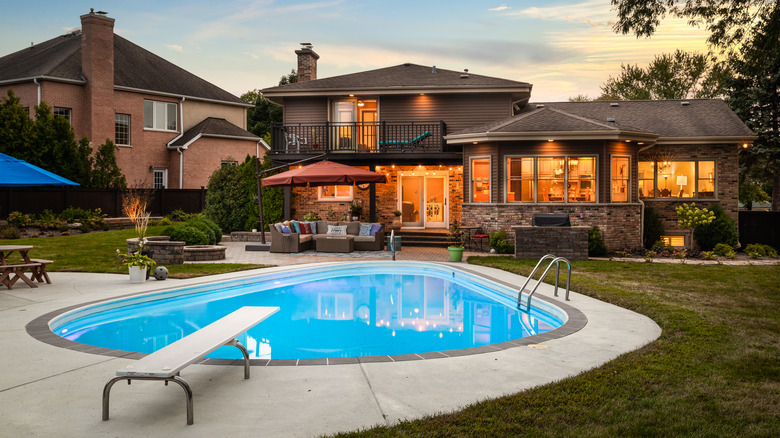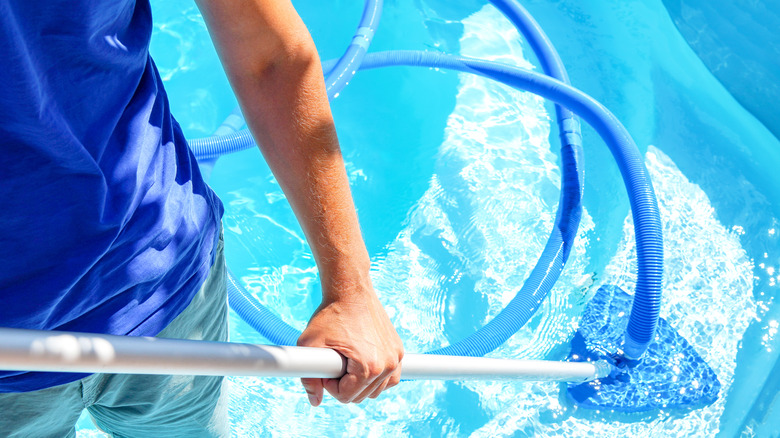Do You Really Need A Vacuum To Keep Your Pool Clean?
Pool ownership most definitely has its highs and lows. At its best, your watery oasis is all about splishy, splashy fun in the summertime filled with chill vibes and tasty toasts. On the other hand, someone needs to protect your investment and keep that bad boy clean and at the top of its game. And, if you're not in an area where it's a must to winterize the pool in the off season, you have to tackle the task all yearlong to keep it looking its best even when you're not using it regularly.
For many households, hiring a professional to take care of maintenance is the best option for keeping a pool clean. They test the water to keep the chlorine and acid levels where they need to be, regularly empty robotic sweepers and skimmer baskets, and do all the routine cleaning. Individuals tackling these chores themselves know that the sides, tanning ledges, and steps also must be scrubbed regularly. But what about vacuuming? Is that really necessary to keep your pool clean?
Why you need a vacuum for pool maintenance
Yes, your pool does need to be vacuumed regularly. Why? Even the best robotic pool cleaners don't get all the pesky schmutz off the bottom and other flat surfaces of your pool. It might do a good enough job of getting most of the leaves and bigger particles off the pool's bottom, but some are too fine to stay within the unit's receptacle and too heavy to get picked up by the pool's filtration system.
Silty, sandy substances that come off rocky walls around your pool, or dirt from landscaping, can swish around on flat surfaces indefinitely if you don't remove them with regularity. This includes areas like tanning ledges (also known as beaches), built-in seating along the edges of pools, and lengthy steps. Procuring a pool vacuum and following the manufacturer's instructions for using it often is the best way to keep this kind of dirty problem under control.
How often to vacuum your pool
As much as you might not want to hear this, vacuuming a pool once a week is recommended, per SwimmingPool.com. It will, of course, depend on how many trees and other objects that tend to dump debris in your pool are nearby. Pool vacuums usually have a filter setting for regular light cleaning and a waste setting for larger particles when needed. Any other times you notice a lot of stuff accumulated on the bottom, like after a big storm, you'll want to pull out the vacuum as well. A side benefit of getting leaves and other biological substances out of your pool as quickly as possible is that it discourages algae growth.
Think all that maintenance might make you regret installing an in-ground pool? Maybe. On the other hand, adding a vacuum to your pool-tool arsenal might make enough of a difference that you won't mind keeping it in top shape.


